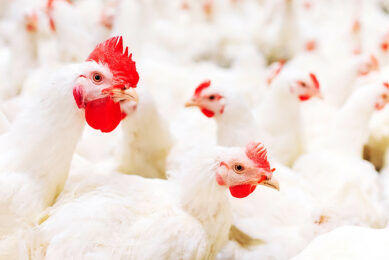Russia’s target of independence on feed lysine in sight

Russian veterinary watchdog Rosselhoznadzor has restricted the import of feed L-lysine from US suppliers Evonik Corporation and Archer Daniels Midland Company. The measure came into force on January 20, Rosselhoznadzor said in a statement on its website.
The Russian regulator explained that US authorities had not allowed Russian veterinary officers to visit those companies in order to conduct a routine inspection. In this light, there were no guarantees that the L-lysine at those facilities is manufactured in compliance with the Russian veterinary regulations and is safe.
The US is a major supplier of feed L-lysine for the Russian market since December of 2017, when Rosselhoznadzor banned L-lysine imports from China. At that time, China accounted for 85% of Russian imports of 70,000 tonnes per year, Russian Federal Customs Service estimated. Russian companies replace Chinese L-lysine suppliers with those from the US, France, Indonesia, Brazil and South Korea, the Russian National Feed Union reported. Russian feed L-lysine imports halved during the past 3 years, despite the growth in demand among local customers. Russia consumed around 110,000 tonnes of feed L-lysine in 2016, the Russian National Feed Union estimated. According to research conducted by the Russian think tank Abercade the demand is projected to reach 150,000 tonnes in 2020.
Also read: Russia ramps up feed additives production
Full self-sufficiency
Domestic production is close to 110,000 tonnes, with 80,000 tonnes produced at the Belgorod based Premixes Plant №1 and 30,000 tonnes at the Tyumen-based Aminosib plant. Those plants came into operation in 2015 and 2017, respectively.
Russia may reach the full self-sufficiency in L-lysine with the launching of a third production plant. In late December of 2019 the Saratov Biotechnologies announced plans to build a new L-lysine chloride plant in Saratov Oblast in European Russia, with an investment of Rub19 billion ($ 300 million) and the designed production capacity of 55,000 tonnes per year. This is going to be the first plant in the country manufacturing L-lysine chloride, the company said. Both Premixes Plant №1 and Aminosib produce L-lysine sulphate.
Another new L-lysine production plant is scheduled to be launched in Rostov Oblast, Southern Russian, in 2021, disclosed Victor Goncharov, deputy governor of the region, speaking at a press-conference in 2019. The owner of the project, Donbiotech originally planned to put the plant into operation in 2018, but failed to do that reportedly because of some financial difficulties. The company has invested Rub13 billion ($ 220 million) into the project. The designed production capacity of the plant is set at 85,000 tonnes per year.
Russia is going to establish excessive production capacities of L-lysine production, Abercade said. It is possible that Premixes Plant №1 and Aminosib will focus on sales for the domestic market, while Donbiotech would try to focus on export supplies, although all companies would be selling their products both in Russia and export it, Abercade added.











